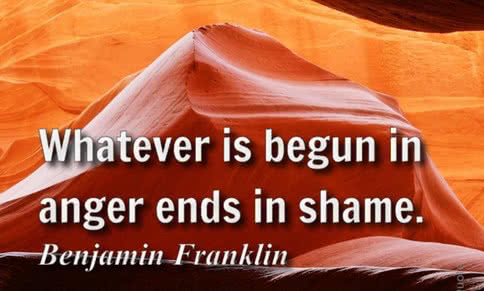3 Quick and Powerful Steps to Hold It Together and Control Your Anger – World Mental Health Day

Webster’s defines irritability as, “a quick excitability to annoyance, impatience, or anger.” Irritability and anger can be a surprisingly common experience of life, but also an uncomfortable and destructive force in our lives and especially in those of our loved ones. It isn’t easy to control your anger, especially when life seems particularly hard.
It’s not surprising that tempers flare under pressure. In fact, so common is anger and irritability that the American Psychological Association’s annual study of Stress in America has once again shown irritability and anger to be the leading symptom of stress in America. The leading symptom. And yet how often do we actually associate feelings of anger with stress and anxiety, in spite of research showing its consistent relationship? Not often. Instead we are likely to associate the feelings of shame and frustration that inevitably follow anger, rendering us more confused, emotionally burdened, and often defeated.
In honor of World Mental Health Day today, here is a primer on the relationship between stress and anger, along with 3 key steps to take control the next time you feel irritability simmering.
- Notice what is happening in your body when you start to feel irritable. Demands on you are building and you are getting angry – this is stress building, and it doesn’t have to be a bad thing. Instead of trying to ignore it (thereby fanning its flames), why not take a few seconds to belly breathe, and turn on your awareness. This activates your thinking and immediately gives you more control – often the thing we are missing. Noticing what is actually happening is more than half the battle.
- Look for the anxiety. Now that you have noticed you are irritable, look for how you are feeling anxious, remembering that there is always anxiety in irritability and anger. Anxiety is what agitates the core emotion of hurt into anger, such that it can be useful to think of anxiety as a sort of volume control for your emotions. If you can get at the anxiety, you can control the volume of your anger. So ask yourself, where is the anxiety in the situation I am facing? What am I afraid of? And name it. Naming it allows you to think about it, rather than act on it. Once you can understand the anxiety in your anger, you no longer have to act on it, and can express yourself in a calmer way. (Hint: usually the anxiety has to do with not being in control, and that you can’t handle the situation).
- Ditch the irrational fear, and engage. You may not like the situation – of course you don’t – and you may have reasonable concerns about looming consequences – that you will have to address – but you can handle the situation, and you do have control over your behavior. Resisting the reality of a situation only makes everything harder and drives up stress and irritability. The easiest path to controlling anger is engagement in a productive solution. Even if it isn’t graceful, challenges like these always make us stronger.
Controlling irritability and anger isn’t easy, but neither is living with its consequences both for yourself as well as the people around you. And getting angry seldom solves underlying stress, and instead usually makes things worse.
The trick is to notice that irritability and stress are so connected that they may be one in the same for you, as they are for most Americans.
 Thinking about irritability as an expression of stress can help give you a new perspective the next time you get angry that in turn can help you better control your anger. Recognizing our fears can help point us towards the solutions we want, rather than fueling our resistance. At their best, stress and anxiety can be good for us, highlight the things that are important to us, and direct our attention to solving the conflicts at hand.
Thinking about irritability as an expression of stress can help give you a new perspective the next time you get angry that in turn can help you better control your anger. Recognizing our fears can help point us towards the solutions we want, rather than fueling our resistance. At their best, stress and anxiety can be good for us, highlight the things that are important to us, and direct our attention to solving the conflicts at hand.
Looking for more help in understanding anxiety? Learn more about my book Hack Your Anxiety and access free tools to help you manage the fear and anxiety going around the world today.